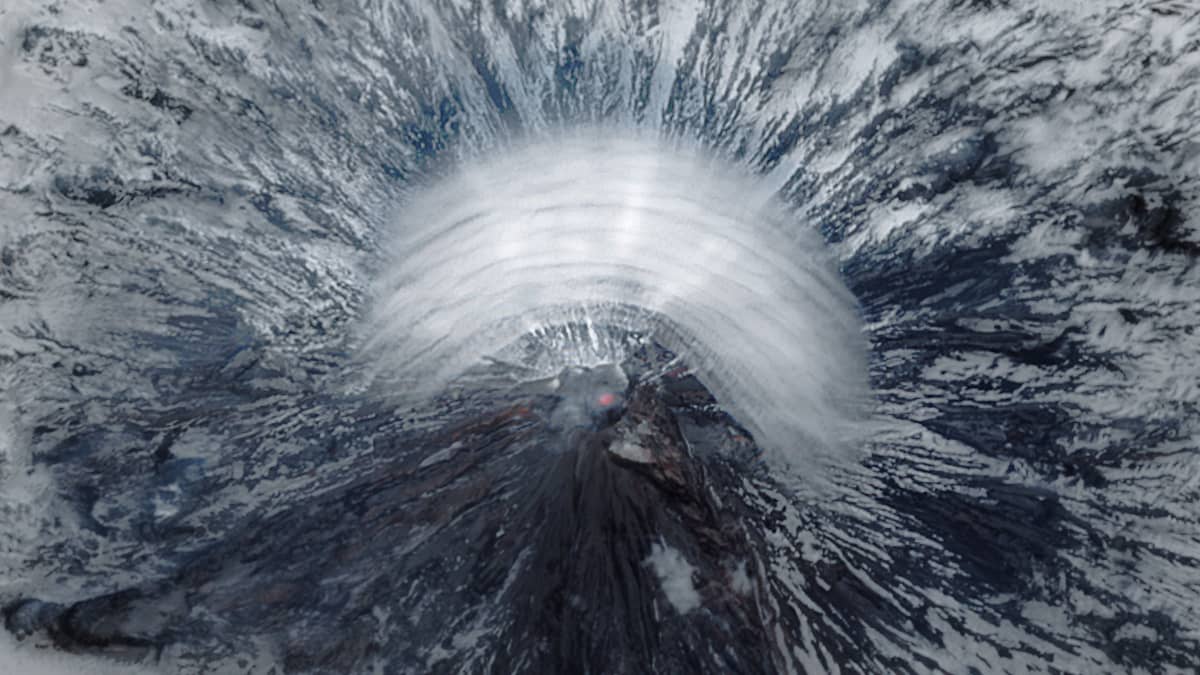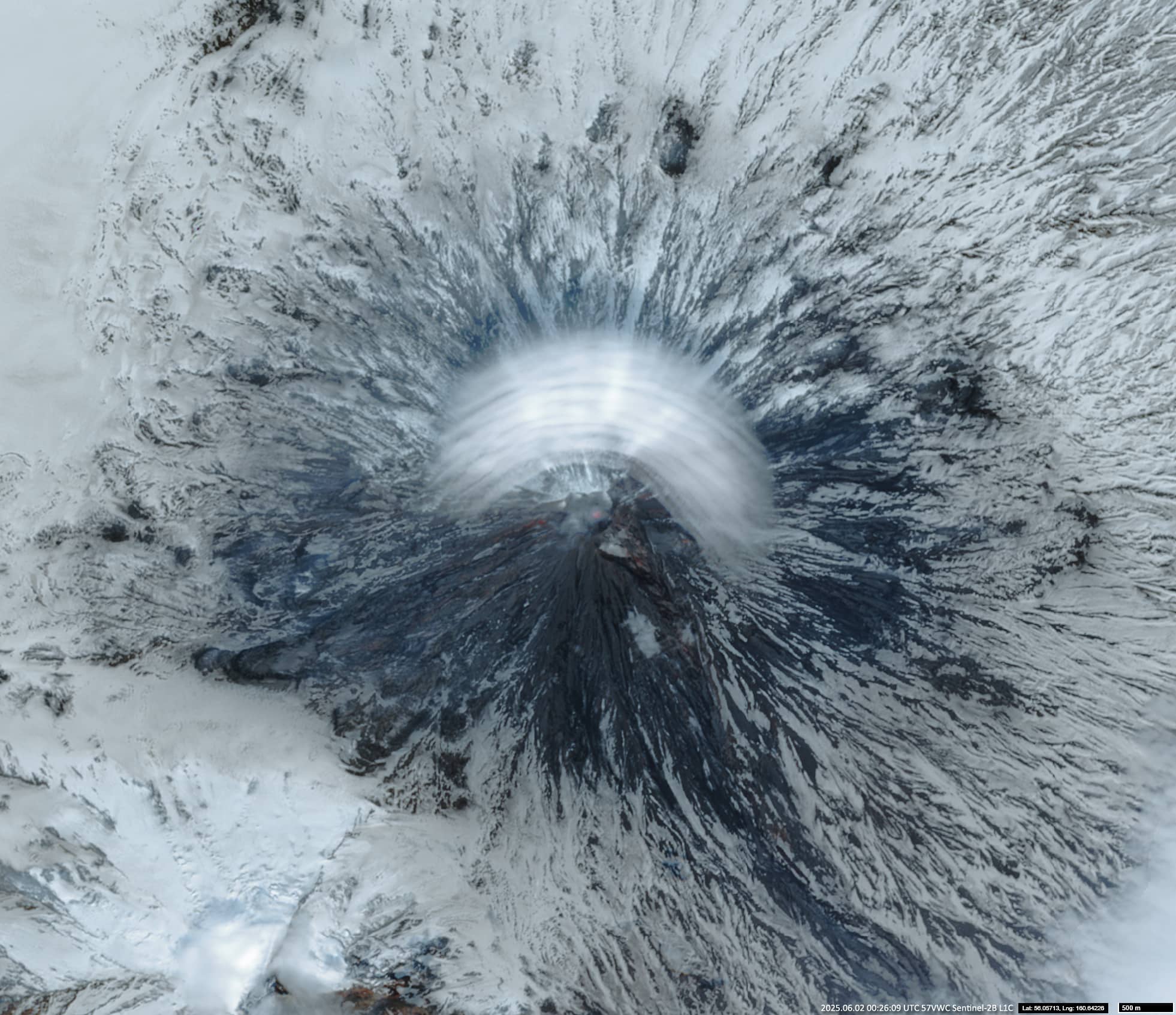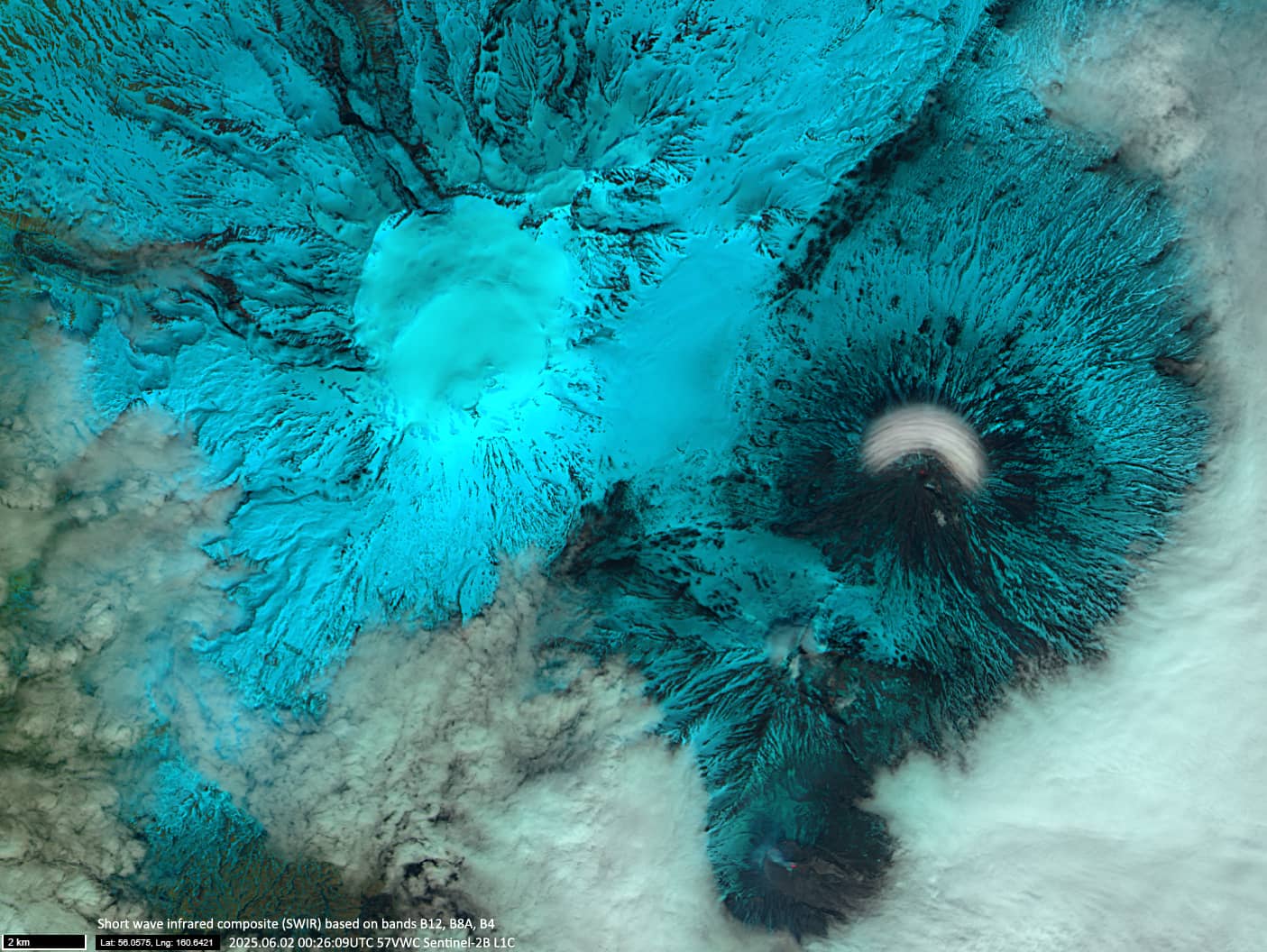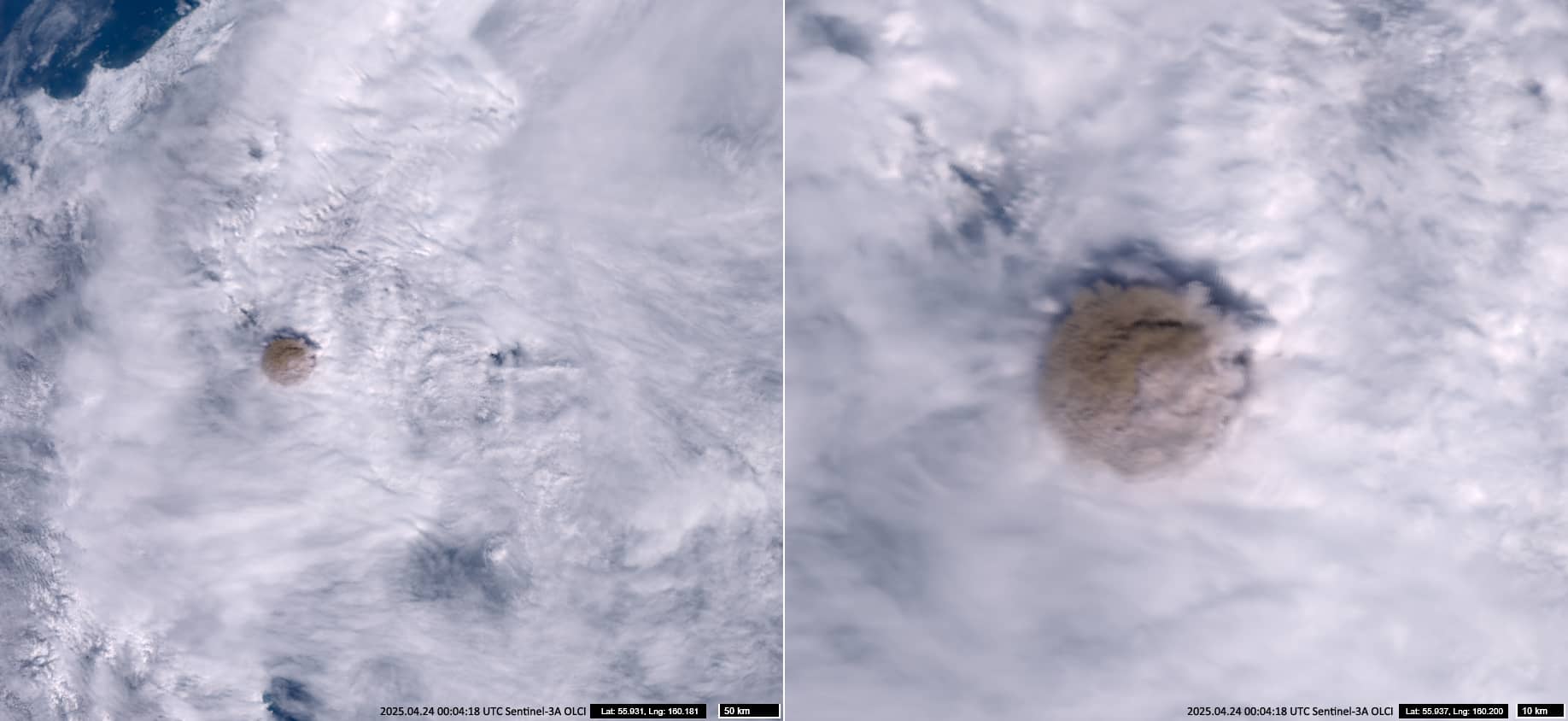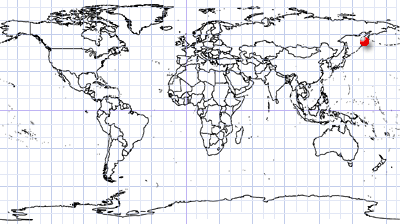
Lenticular clouds over volcano
Kamchatka Peninsula | Russian Far East
Dates of acquisition:
• 2025.06.02 | 00:26:09 UTC
• 2025.04.24 | 00:04:18 UTC
Sensors: Sentinel-2B L1C, Sentinel-3A OLCI
Coordinates: ca. 56.06°N, 160.64°E
Nature is diverse and beautiful.
When observing our planet from space, one often encounters objects that are strikingly beautiful and aesthetically significant.
Figures 1 and 2 show an image from Sentinel-2 of lenticular clouds over the northern slopes of the stratovolcano Klyuchevskaya Sopkain Kamchatka. This volcano is the highest mountain in Siberia and the highest active volcano in Eurasia.
Lenticular clouds are stationary clouds that are generally oriented parallel to the wind direction. In this case, they rise no higher than 4.5-4.7 kilometres, surrounding the mountain in a transparent, wave-shaped semicircle of 7-9 ridges, each about 3.3-3.5 kilometres long. This semicircle harmonises wonderfully with the radially arranged white glaciers visible in the folds of the volcano.
From 18 to 22 April, a thermal anomaly was detected on Klyuchevskoy Volcano. A new Strombolian eruption began on 20 April. Despite the dense cloud cover, a column of volcanic gases and ash broke through, rising into the air and being observed by the Sentinel-3 satellite (Figure 3).
Further reading
Klyuchevskaya Sopka (Wikipedia)
Lenticular cloud (Wikipedia)
Report on Klyuchevskoy (Smithsonian Institution)


